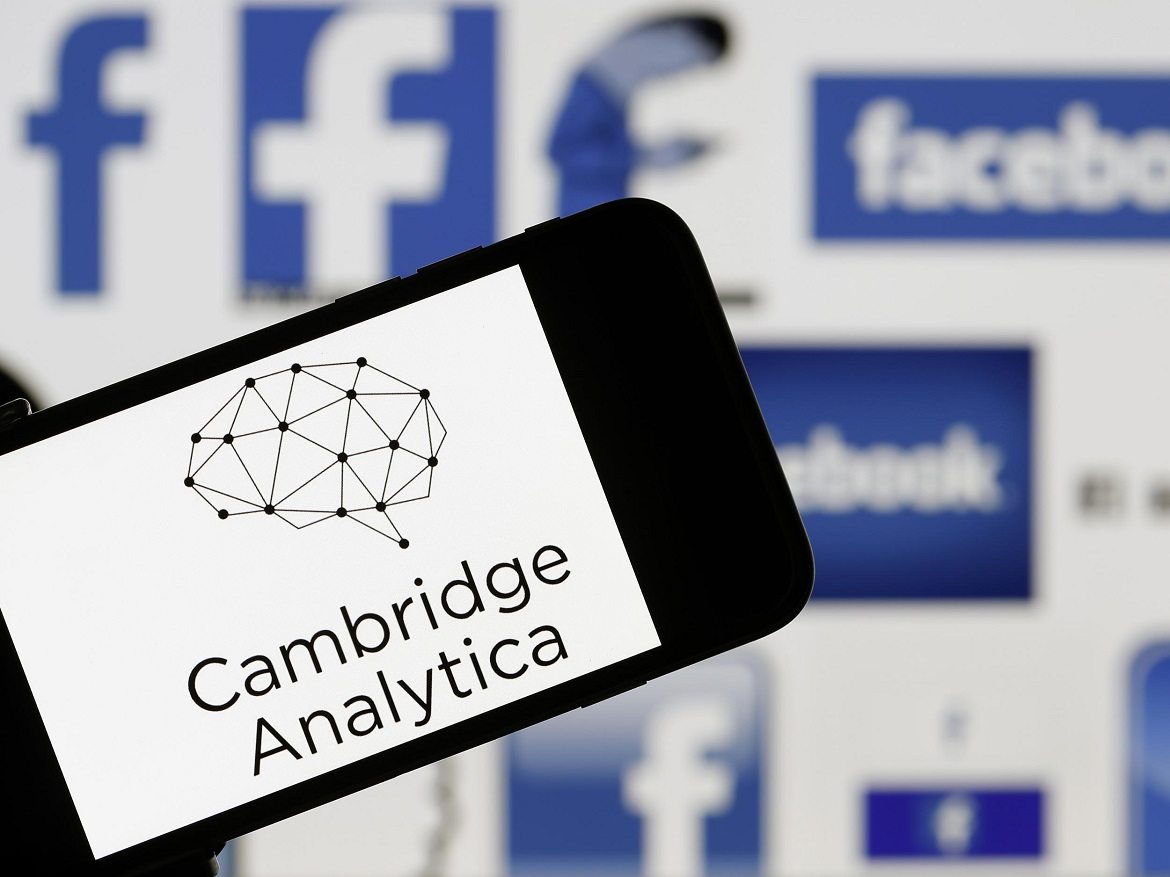
They Know Your Secrets: Why The Facebook And Cambridge Analytica Fiasco Is Scandalous And Undemocratic
Lifestyle May 07, 2018
Unless you’ve been living under a rock, you’ve likely heard about the scandal surrounding Cambridge Analytica and the social media icon, Facebook, as CEO, Mark Zuckerberg, recently appeared before Congress. With each passing day, the scope of the scandal seems to grow and even involves India. For all you need to know, check out our scoop below and see why the Facebook and Cambridge Analytica Fiasco is scandalous and undemocratic.
The beginnings of Cambridge Analytica:
In 2013, American billionaire, Robert Mercer, bankrolled a “$1.5 million pilot project to poll voters and test psychographic messaging in Virginia’s gubernatorial race in November 2013.” Psychographic messaging essentially captures who your audience is and how they think in order to better market and cater to them.
In 2014, Christopher Wylie, who had political interests, particularly surrounding how “psychological traits” could influence voters, was scouted by Alexander Nix. Nix, at the time, was spearheading “the small elections division at SCL Group, a political and defense contractor,” and was eager to delve into the growing market for psychological data.

With upcoming political campaigns, such as Senator Ted Cruz’s, the pressure was on for the firm to figure out how to unearth the data that they desperately needed. The problem was, according to the New York Times, they could not rely on typical data that “traditional analytics firms used, [such as] voting records and consumer purchase histories to try to predict political beliefs and voting behavior.” This is because, as noted by the New York Times, “those kinds of records were useless for figuring out whether a particular voter was, say, a neurotic introvert, a religious extrovert, a fair-minded liberal or a fan of the occult. Those were among the psychological traits the firm claimed would provide a uniquely powerful means of designing political messages.”
Enter Cambridge University’s Psychometrics Centre, where Wylie had finally found the key to unlock the Pandora’s box of political data he and Nix were keen to get their hands on. According to the New York Times, Wylie had discovered that “researchers there had developed a technique to map personality traits based on what people had liked on Facebook. The researchers paid users small sums to take a personality quiz and download an app, which would scrape some private information from their profiles and those of their friends, activity that Facebook permitted at the time.”
However, the Psychometrics Centre refused to assist Strategic Communication Laboratories (SCL). But, SCL did not falter, because another member of their faculty would: Dr. Aleksandr Kogan.

An additional $15 million from the Mercer’s allowed the newly founded shell of a company, Cambridge Analytica, to officially be born in the United States.
Meanwhile, at the time, Facebook, on their Open Graph platform, was granting permission to third-party app developers to contact “Facebook users and request permission to access a large chunk of their personal data — and, crucially, to access their Facebook friends’ personal data too.” The developers would be able to collect information about a user, such as their “name, gender, location, birthday, education, political preferences, relationship status, religious views, online chat status, and…[even]…private messages.”
Dr. Kogan, who was familiar with methods the Psychometrics Centre used to build their app, with funding from SCL, created a new app, “thisisyourdigitallife,” which by June 2014 was being used to gather information. Dr. Kogan only informed Facebook and participants who used the app that the data they were providing was to be used for “academic purposes.” It is important to note that Facebook did not do their due diligence to verify that Dr. Kogan was being forthcoming in why he needed the information that he then sold to Cambridge Analytica. Nonetheless, it appears that a whopping 87 million users’ data was accessed, which ultimately allowed them to be manipulated in political campaigns (i.e. in the United States and Brexit), however only approximately 270,000 of them had actually provided their permission to have their information collected. But, the kicker is that Dr. Kogan was allowed to duplicate the data and keep it for his own records as well.
Fast-forward to 2014, in spite of Facebook’s rules changing that curbed third-party access to information, this was not retroactive. That being said, when Facebook learned about the data that Cambridge Analytica had obtained, in 2016, they wrote to them to request that it was destroyed. However, it is unclear that this was obliged with and Facebook did not follow-through to confirm that their request was met nor did they publically come forward to tell users about what had transpired with their data.

How is India involved?
In India, Cambridge Analytica, as a branch of SCL Group, operated as Ovleno Business Intelligence (OBI), which was managed by Amrish Tyagi and Avneesh Rai. OBI engaged in election management and could be employed for assistance with “social media strategy, election campaign management and mobile media management.”
According to, Rai, when Nix came to India in 2011, he was bent on working with the Indian National Congress (INC) party. However, when creating the questionnaire for OBI’s contract with Congress, the survey only seemed to cast them in a negative light. Rai highlights that he was notified that the true intention was to beat Congress “in what may have been a plot to defeat them on behalf of other political actors.”
Meanwhile, following the Cambridge Analytica scandal coming to a head, it has been noted that, at least, 335 people had utilized the app and completed the survey. This resulted in approximately “562,120 people in India who were friends of these people” having their data accessed.
Interestingly, Prime Minister Narendra Modi’s party, Bharatiya Janata Party (BJP), are being called out by Congress for utilizing Cambridge Analytica/OBI. It is argued that his employment of “big data and analytics to assure him there were no ‘last mile’ problems” in the most recent election that ultimately led to PM Modi’s win. Not to be outdone, BJP has also accused Congress of utilizing Cambridge Analytica’s services as well. Nonetheless, both parties have continued to deny their involvement with Cambridge Analytica in spite of being listed on OBI’s website as clients.

The icing on the cake is that Cambridge Analytica contacted “both the Congress and the BJP for a possible collaboration for their 2019 Lok Sabha election campaigns.” In their pitch to Congress in 2017, Cambridge Analytica, which came to light via social media, outlined that they could mobilize information from Facebook to “influenc[e] the voter intention.”
Why is what Cambridge Analytica did undemocratic?
Since the scandal broke, Cambridge Analytica has been on the defensive, arguing that their actions were “…legal and considered a standard component of online advertising.” However, the problem with their methodology, psychographic profiling, is that it’s not a traditional sense of advertising as the user’s data is being analyzed and then they’re provided with specific information. This takes away the individuals ability to “…engage their critical faculties and the chance to act as a rational constituent weighing up their political choices in an obvious and well thought through manner.”
In a democracy, “active participation of the people, as citizens, in politics and civic life” is necessary, whereby they’re supposed to be able to criticize political leaders and make informed decisions when voting. In considering Cambridge Analytica’s purpose and actions, it becomes evident that they have worked to undermine democracy. This is due to populations being limited to the data they are exposed to, which can lead to elections being swayed and ‘stolen’ as voters are not as informed as they should. While the individual does has a civic duty to be active in their political education, it is difficult when you are being manipulated by the content that is readily at your fingertips.

As such, while the British firm, Cambridge Analytica, on May 2, 2018, succumbed to the negative exposure and loss of business as they closed their doors. Though, arguably, shutting down was more likely in an effort to decrease “the legal and financial liabilities” they may face. However, a similar company, Emerdata, has already been established, with the Mercers and other vital players at the helm. This illustrates that this growing market for political data, in which psychographic profiling occurs, is not going away and both the law (such as India’s cybersecurity laws) and people within each society must become more aware and adapt to this type of targeted advertising approach to ensure that what is at the core of democracy remains as unscathed as possible.
Main Image Photo Credit: www.independent.co.uk
Devika Goberdhan | Fashion Editor
Author
Devika (@goberdhan.devika) is an MA graduate who specialized in Political Science at York University. Her passion and research throughout her graduate studies pushed her to learn about and unpack hot button issues. Thus, since starting at ANOKHI in 2016, she has written extensively about many challe...

















































































































